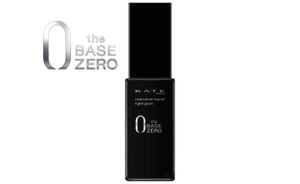The Antioch High School shooting on November 18, 2025, has rocked the Nashville community as new details have emerged from the chilling manifesto of 17-year-old Solomon Henderson, the suspect accused of fatally shooting 16-year-old Josselin Corea Escalante before turning the gun on himself. The attack unfolded during lunch hours at the school, which primarily serves Black and Hispanic students, leaving students and parents grappling with the aftermath of such senseless violence.
According to reports from NewsChannel 5 Investigates, Henderson’s manifesto surfaced soon after the shooting and revealed disturbing insights about his mindset. Within its pages, it indicated praise for Adolf Hitler and included vehement anti-Black and anti-Semitic sentiments. Strikingly, Henderson credited conservative commentator Candace Owens as one of his primary influences, stating, “Candace Owens influenced me above all each time she spoke.” This assertion has ignited discussions about the impact of such public figures on vulnerable individuals grappling with their identities.
Henderson’s manifesto allegedly contained plans to livestream the attack, which he did at least partially, thrusting his actions onto social media platforms. He included detailed layouts of the school, along with purchased items like weapons and ammunition, painting a picture of premeditation and chilling intent. The document also reflected his own struggles, as he expressed feelings of racial self-hatred admitting, “I am ashamed to be Black,” and conveyed alarming suicidal thoughts, saying, “I wanted to kill myself. I just couldn’t take anymore. I am worthless subhuman, a living breathing disgrace.”
The shooter had reportedly posted images of Hitler and referenced extremist groups, linking his ideology to organizations like the Goyim Defense League. This neo-Nazi group had visited Nashville the previous summer. Henderson’s writings included links to other shooters’ manifestos and praised various mass shootings, demonstrating the influence of extremist ideologies available online.
According to The Tennessean, authorities are currently trying to trace the specifics of Henderson’s radicalization, with Carla Hill from the Anti-Defamation League’s Center on Extremism noting, “Our analysts located a sprawling manifesto full of anti-Black content, references to accelerationism and antisemitism.” The investigation is examining how Henderson's social media interactions may have fueled his obsession with radical ideas and violence.
Providing additional commentary, Oren Segal, VP of the ADL Center on Extremism, pointed out the dangers of online environments: “These online spaces not only glorify violent fantasies, extremist ideologies, and mass killers but also fuel offline violence — acts often as incomprehensible as the ideologies driving them.” This sentiment echoes the broader concern about how digital platforms can inadvertently support such dangerous ideations.
Footage from the attack showed chaos erupting as students scrambled for safety, illustrating the immediacy and horror of the situation. While Henderson claimed he would take his own life during the attack, he did manage to injure another student during the rampage before reaping fatal consequences himself.
Responses to Henderson’s manifesto have been polarized. Owens, upon hearing claims of her influence, denied having any connection to the shooter, labeling the manifesto as “an obvious troll.” She stated, “It is truly sickening... rather than to responsibly make sure... accurate.” This highlights the complex debate surrounding how public figures are associated with events of violence and the public onus for accountability.
The shooting at Antioch High remains emblematic of broader societal challenges of youth mental health and the radicalizing potential of online communities. Advocates call for more stringent measures to address the types of incendiary content available online and cultivate healthier discourse around issues of race, identity, and violence.
Survivors of the shooting continue processing the impact of the horrific event, showcasing the need for support within the community. “I feel relieved and safe but I feel bad for the victims who lost their lives,” one student recalled, reflecting the emotional toll this attack has taken. The discourse surrounding this tragedy emphasizes the importance of addressing the factors contributing to such outbursts of violence, especially among impressionable youth driven to extreme ideologies.



